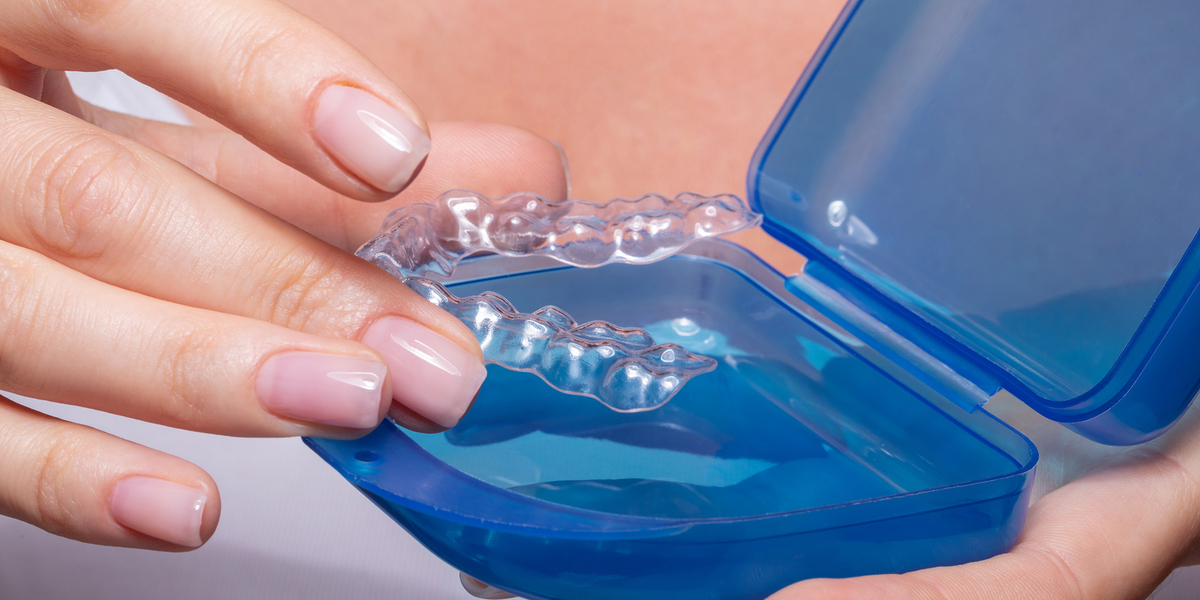Dental Invisalign in Newmarket is becoming the next big thing to braces. This orthodontic treatment is made of a plastic tray that patients wear over their teeth. Just like braces, the Invisalign aligners aim to fix teeth that are misaligned or crooked. However, Invisalign is attracting patients more than braces used to because of its advantages.
Dental Invisalign
The term Invisalign is coined from the words “invisible” and “aligners” since they are almost invisible. That’s one notable benefit its users now enjoy. They can wear clear aligners without worrying about attention-grabbing metal wires.
Since it’s also removable, the patient can easily remove the tray to clean their teeth and the appliance thoroughly. Nevertheless, dentists advise wearing a clear aligner for at least 22 hours daily to maximize its effects. After a week or two, the dentist provides a new tray tighter than the previous one so the teeth gradually move to the proper position.
Common dental problems that Invisalign can correct crooked teeth
Crooked or misaligned teeth are one of the most common orthodontic issues. Usually, this results from early tooth loss, like losing baby teeth or a permanent primary tooth. Missing teeth can trigger the other teeth to misalign as they move to the gap. Sometimes, this can go unnoticed. That’s why patients will need orthodontic treatment. Invisalign can quickly fix little crooked teeth issues.
Crowded teeth
Some patients have mouths too small to fit all their teeth. The bites overlap and don’t leave enough space for a brush or floss to clean between them. Eventually, this leads to bacteria buildup in places that are hard to reach or penetrate. Clear aligners will correct this issue.
Underbite
An underbite is a condition where the lower teeth protrude over the upper teeth. It is a significant factor in a patient with speech problems, such as lisping. It also makes it hard to chew food properly as the teeth don’t meet correctly to grind the food. If this is your issue, you may consult your Invisalign dentist to improve your teeth’ alignment.
Overbite
Opposite to the underbites, the overbite is where the upper bites overlap the lower teeth. It protrudes, making it hard for patients to close their mouths, speak properly, or chew. This problem also gives a challenge to the patient when brushing their teeth. Our dentist near you can correct this successfully with invisible dental aligners.
Open bite
Thumb-sucking and pacifier use significantly contributes to an open bite problem. That’s why dentists encourage parents to actively participate in their children’s oral hygiene routines and observe their oral practices. In that way, they can easily manage if their kids begin to form a kind of oral habit. However, it can’t be helped sometimes. Open bites are culprits of speech problems, and to fix this, the patient should use dental aligners.
Gapped teeth
If a gap between teeth is too spacious, this is an open door to periodontal disease. Teeth gaps can trap or lodge food and quickly build up disease-causing bacteria. Even if you clean your teeth too often, there is no guarantee that you can maintain your health. It’s best to close those spaces with Invisalign. You will not only keep your oral health, but you will also improve the look of your smile.
Crossed bite
A crossbite is where the upper teeth fit behind the lower teeth. When the patient with a crossbite closes their mouth, the upper and lower bites do not come together correctly. This malocclusion could quickly wear down your teeth and lead to a painful gum recession. With Invisalign, the bites can gradually correct to the proper placement.
To understand more about Invisalign, your Newmarket dentist will happily meet you for a consultation. It’s best to see your dentist so they can assess your smile thoroughly and find the most suitable improvement method.

